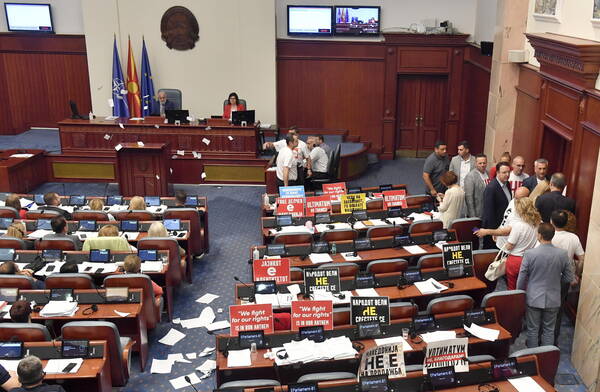North Macedonia and Bulgaria sign EU negotiating protocol
But Sofia's demands on Skopje constitution and language remain
17 July, 20:18"The protocol contains extremely ambitious short- and long-term measures, which in practice aim to resolve many of the open issues between our two countries and the concrete steps that North Macedonia should take," said resigned government minister Ghenciovska at a press conference after the signing.
Ghenciovska explained at the same time that "Skopje will start the actual negotiations for EU membership only after including in the constitution that Bulgarians living in North Macedonia are citizens of the country on a par with other nationalities." "It is known," he added, "that in its bilateral relations with the Republic of North Macedonia, Bulgaria does not recognize its official language (Macedonian). However, the issue has specific aspects in the context of the other 26 EU countries that have their own position and we cannot force them in any way to accept our official position." Finally, the minister announced that the content of the bilateral protocol signed today between Bulgaria and North Macedonia will be made public next Tuesday. Osmani for her part stressed that the protocol "marked a new beginning in bilateral relations" between the two countries. Sofia accuses Skopje of not respecting the rights of Bulgarians living in North Macedonia, of distorting historical truth by appropriating the authorship of important people and figures believed to belong strictly to the Bulgarian historical and cultural tradition, and of inciting hatred against Bulgaria.
And it also does not recognize Macedonian as a language in its own right, considering it a dialect of Bulgarian. This is why Bulgaria, which has been an EU member since 2007, blocked the start of negotiations between Skopje and the EU, already scheduled for late 2020. (ANSA).














